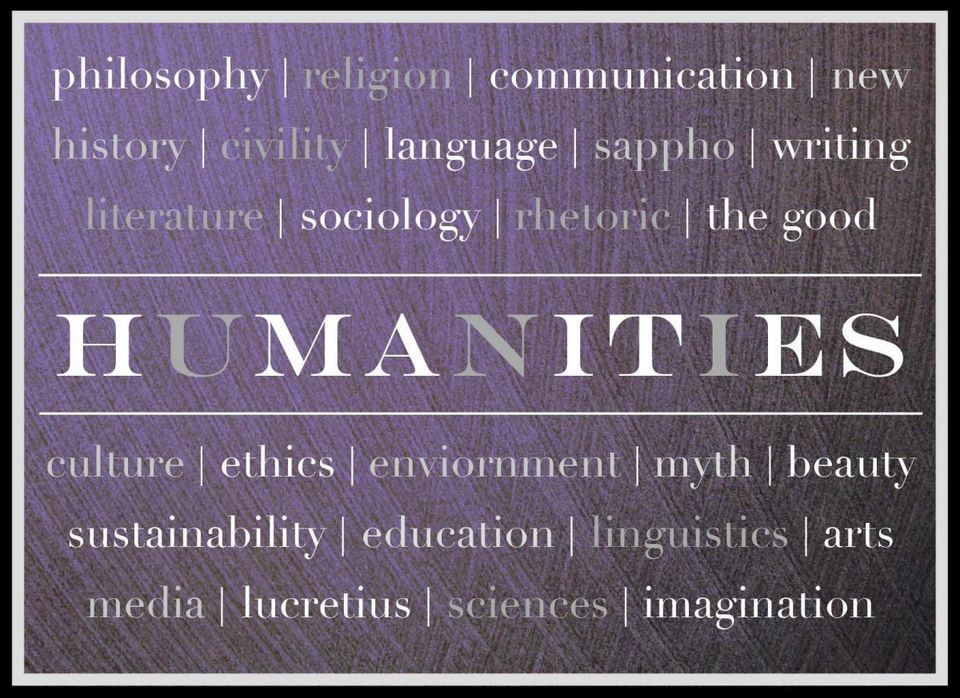It is no secret that higher education is in crisis. Costs are outpacing inflation by a wide margin. More students than ever question the value of their studies. And the sheer amount of free information has caused many to question just what is worth studying–and why.
There are more options than ever before in American higher education. Students and prospective students can choose among public and private, sacred and secular schools. There are two-year degrees, four-year degrees, countless combinations of majors and minors, and programs for both residential and distance learners. Probably not a week goes by without another article on the death of higher education, or the decline of the humanities.
The traditional assumptions about university education are being questioned; while a four-year degree in any subject was the norm in past decades, now its price tag must be thoroughly justified.
In addition to the pressing concerns raised by the costs of higher education, there is the more specific concern about the fate of the humanities. Stanley Fish, currently the Floerscheimer Distinguished Professor of Law at Cardozo Law School, has been one of the most perceptive public defenders of the humanities in recent years. Fish sees the place of the humanities, and the more recent rejection of them in this way:
“[The study of the humanities existed] as a cloistered and separate area in which inquiry is engaged in for its own sake and not because it yields useful results. It is the rejection of this contemplative ideal in favor of various forms of instrumentalism that underlies the turn away from the humanist curriculum.”[1]
For Fish, the value of the humanities lies precisely in their lack of immediate utility. This he contrasts with other defenses of the humanities, which highlight their usefulness in a complex, multicultural society.
Several months ago, I received a copy of the 1541 edition of John Calvin’s Institutes of the Christian Religion, newly translated from French. Since I was primarily familiar with the Latin edition of 1559, I was curious to see for myself if the initial impressions I received were dramatically different between the two. I knew the basic differences from scholarly analyses, but I wanted to observe them for myself.
I was struck by something that hadn’t changed among all the editions. Calvin’s well-known opening lines are essentially the same. They are profound and sweeping. From the 1559 edition: “Nearly all the wisdom we possess, that is to say, true and sound wisdom,” he writes, “consists of two parts: the knowledge of God and of ourselves.”
For Calvin, the knowledge of God and knowledge of oneself are clearly linked together. You cannot possess one without the other. And he makes it clear that God has spoken to us in God’s word, the Bible. Taken seriously, this means that that source for nearly all true wisdom we possess – to use Calvin’s formulation – comes from God’s own self-revelation in scripture. If these things are true, then what bearing does this have on our understanding of higher education today, which, in the United States, is characterized by both a deep crisis and a plethora of options?
While Fish proposes the value of non-technical education, Calvin’s formulation on knowledge seems to point in a different direction than Fish or his opponents. On the one hand, with Fish, Calvin believes studying the subjects of God and man–today, broadly termed “the humanities”–is a worthy pursuit; but contra Fish, Calvin also sees immediate relevance, even urgency, in this kind of study.The humanities need not be relegated to the realm of study for its own sake.
For Calvin, the fundamental question is this: “Has God truly spoken?” Has he told us about Himself, about ourselves, about life in general? Has He given us something which we must study?
Calvin has a definitive answer. Yes, God has spoken and is emphatically not silent. God has spoken through the prophets in the Old Testament and apostles in the New; most importantly, God has spoken through His Son, Jesus Christ. All of His words that we need – the words of the prophets, the apostles, and the Son – are contained for us in the Bible. This is Calvin’s contention, at least. But what difference might this make for higher education? If God has spoken through the scriptures then higher education which explicitly acknowledges biblical revelation (I’ll call it “theo-centric education”) would be committed to being different from other educational alternatives in at least two specific ways. Broadly speaking, there would be a commitment to a particular type of study and a specific way of studying. Together, these commitments would make for a distinctive university education. This education would be generally centered on the concerns and methods of the humanities, but would contain an urgency–a sense of direct personal applicability–throughout.
Because God has spoken truly in His word, the content of education would be different. A theo-centric higher education would have a heavy emphasis on Bible and theology at its core. If the sovereign God, Creator and Savior, has actually spoken to His creatures, then surely this message would be significant. It is not something that could be relegated to one or two minor courses in four years of intensive coursework. If God has truly spoken, a thorough university-level education would need to devote more than just a few hours in one or two semesters to the study of this revelation. And an education that ignores the authoritative word of God entirely is at best incomplete; at worst, utterly misleading.
If God has spoken truly in His word, this education must also be integrated. God’s word does not simply address personal spiritual concerns; it addresses many aspects of life, both public and private. It presents an understanding of God, of ourselves, and of the world in which we live. Isolating biblical teaching sells it short; in fact, to isolate the Bible would be to misunderstand it entirely. This means that the theo-centric model is not content with simply requiring a large core of Bible and theology courses. Biblical teaching must be integrated into the entire curriculum.
There is no easy formula for such integration. Many of the seemingly simple solutions actually make biblical teaching less integrated into the subject matter, not more. Simply adding a Bible verse onto a string of scientific, mathematical, or historical concepts reinforces the notion that the words of God are merely private and personal, needing to be tacked on to the real stuff of life. True biblical integration would mean that the core teachings of the Bible about God, humanity, sin, and salvation would need to be understood thoroughly by each professor, whatever its subject matter. But this is merely a starting point. Biblical cohesion in the classroom requires individual teachers who are an embodiment of biblical integrity, cohesion, and wholeness. Because the curriculum needs to be integrated, teachers would need to fully and deeply understand their personal field of expertise and the teaching of God’s word. If God has spoken, as Calvin maintains, we as His creatures must understand everything in light of that teaching.
The fullest education would necessarily take place within a community. There are several reasons for saying this. First, Calvin argues that God’s word is never just about one individual. In creation, God made both male and female; Israel is chosen as a nation to bless the world; the church is an assembly, one body with many parts. Biblical faith is always lived and learned with others. This principle may even reflect something about the very nature of God as revealed in the Christian scriptures. He is one God in three Persons: Father, Son, and Holy Spirit. Though the analogy is inexact, we could say that God Himself exists in a kind of community.
But beyond this, the scriptures point to the idea that the object of life is love. Its understanding of the human person goes beyond seeing humans as merely well-functioning machines or completely autonomous individuals. In the theo-centric model human beings are understood to find their fullest expression in life when they are loving God with their whole heart, and soul, and mind, and loving their neighbors as themselves. St. Paul states it concisely: “If I have not love, I am nothing.” Calvin would agree.
So if we are going to learn the things that God intends in the way He intends, and if we are to live out those commands in the way He commands, then a community of love is essential. It’s true that students can receive an education without this type of community, but if God has spoken, then a fully theo-centric education demands a community in which to learn.
There is an enduring, and even revolutionary, power of our great thinkers and great texts–even if they are as far removed from us as 16th century Geneva. If Calvin is right, then the scope of his words goes well beyond the form the humanities take. Wisdom applies to all of life, and the search for a knowledge of God and of ourselves–the search for wisdom–carries with it a range of applications far broader than just those that apply to teaching. The crisis in higher education represents a small aspect of the larger questions of meaning and purpose and value. To Calvin, there was a path forward amidst these questions, a path illumined by an eternal God and the wisdom of the Word.
Citations[1]Stanley Fish, “A Case for the Humanities Not Made” New York Times, July 24, 2013.




